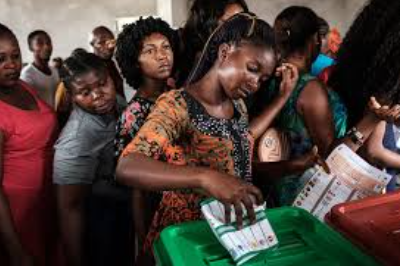
|
Getting your Trinity Audio player ready...
|
On 15 May 2025, a controversial bill made its way through the National Assembly, and if passed, it could land Nigerian citizens in jail for six months or force them to pay a fine of 100,000 naira for simply not voting. The House of Representatives has passed through Second Reading.
The proposed law calls for compulsory voting in all general elections. The Speaker of the House, Abbas Tajudeen, and Hon. Daniel Ago sponsor the bill. It aims to make voting a right and a legal obligation.
However, the proposal has sparked serious debate among lawmakers and Nigerians. The bill seeks to change several sections of the current Electoral Act, especially Sections 9, 10, 12, and 47. Among the key proposals is the addition of Section 47(4), which would make it mandatory for all registered voters aged 18 and above to vote in general elections.
Anyone who chooses not to vote without a valid reason would commit an offence, punishable by a fine not exceeding N100,000 or up to six months in prison.
Some people support the bill as a bold step to revive civic participation and fight Nigeria’s persistent problem of low voter turnout. In the last presidential elections, only a small percentage of registered voters turned up at the polls, raising concerns about the legitimacy of elected officials.
In his lead debate, Hon. Ago expressed the need to address the persistent issue of low voter turnout in Nigeria’s electoral process and strengthen democratic participation. While describing voting as a right and a civic duty, Hon. Ago emphasised the vital role of active citizens’ engagement in any thriving democracy.
He noted that making voting mandatory would reduce apathy and increase political inclusiveness.
Despite the passionate arguments favouring the bill, several lawmakers voiced strong opposition. Among them were Hon. Awaji-Inombek Abiante, Hon. Mark Esset, and Hon. Ghali Mustapha, who all raised red flags about the bill’s implications. They questioned how the law would be implemented in rural or conflict-affected areas, where many voters already face difficulties accessing polling units or even finding their names on the register.
They also warned that penalising citizens for not voting could be a violation of basic freedoms, especially in a system where electoral violence, voter suppression, and fraud are still very real issues.
“What happens to citizens who don’t feel safe enough to vote? Or who have lost faith in the system?” one lawmaker asked during the debate.
Meanwhile, Deputy Speaker Benjamin Kalu and Hon. Akarachi Amadi supported the bill, insisting that compulsory voting could promote stronger civic engagement and help build a shared responsibility for Nigeria’s leadership.
Speaker Tajudeen defended the bill, arguing that mandatory voting would “deepen Nigeria’s democratic culture” and ensure citizens actively select their leaders.
According to the explanatory memo attached to the bill, the goal is to address voter apathy. However, critics say that until trust in Nigeria’s electoral system is restored, mandatory voting may feel more like a punishment than empowerment.
And in a country where millions of people already struggle to survive daily hardship, many worry this bill could become another tool to punish the most vulnerable, rather than help them find their voice in democracy.






